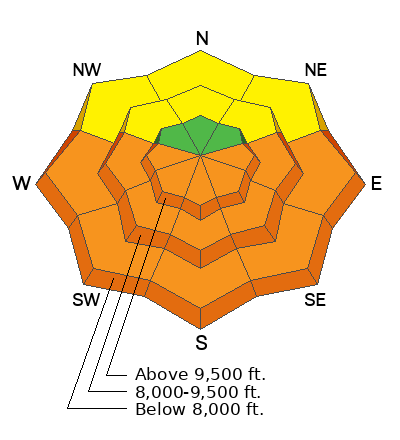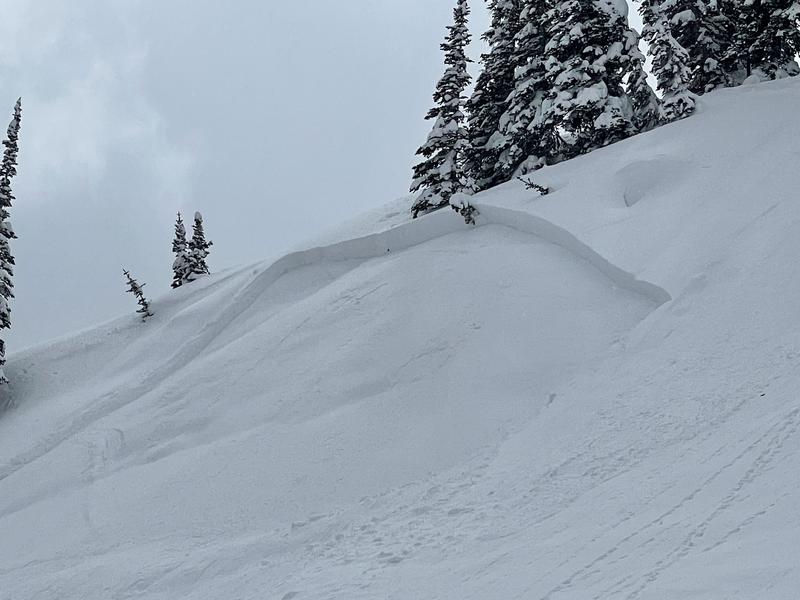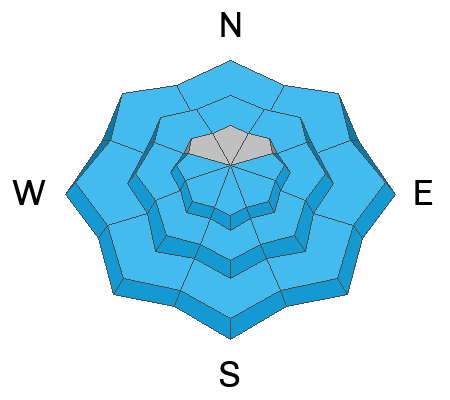Support the UAC website backend platform to ensure the ongoing security of the website and the data stored on the site rebuild by
donating to our spring campaign. Skies are clear.
Winds are light from the northwest, blowing 5-10mph on all but the highest peaks, where they're blowing 15-20mph.
Mountain temperatures are 10-15°F warmer than they were at this time yesterday with current overnight "lows" in the upper 20s to low 30s. I do expect a refreeze of the snow, but it'll be fleeting with a shorter window to recreate on and below steep solar aspects today. Beyond that window, the snow will become wet, punchy, unsupportable and dangerous for wet avalanches.
All aspects and elevations but high true north will have varying degrees of supportable to breakable to trapdoor crust this morning.
For today, we'll have sunny skies, light winds backing to the southwest, and mountain temperatures skyrocketing to the low 50s down low, the mid to upper 30s up high.
The Outlook: Winds will start to increase from the southwest tonight and Thursday ahead of a fairly potent looking storm arriving Friday. Relief in the form of a cold front arrives early afternoon Friday with snowfall expected through the weekend with 10-16" expected.
Wet avalanches: With skyrocketing temperatures and direct sun, wet avalanches cascaded down the steepest sunlit terrain yesterday, leaving impressive debris piles. Those overstaying their welcome on these sunlit slopes by midday also found it easy to trigger wet loose avalanches and it paid off to move out of the fall line to avoid the cement mixer.
Soft slabs: A few soft slab avalanches occurred since Sunday in steep alpine terrain. Most of these were 8-16" deep and up to 150' wide. Most of these have likely healed with natural settlement and bonding. Matt Wiest photo below from the Ant Knolls.
⚠️ Thanks to those who have called the local ski area dispatch to report avalanches in areas adjacent to ski areas or above the road. This prevents SAR teams from unnecessarily responding in potentially dangerous situations for no reason.
MORE INFOCheck out all avalanches and observations
HERE.










